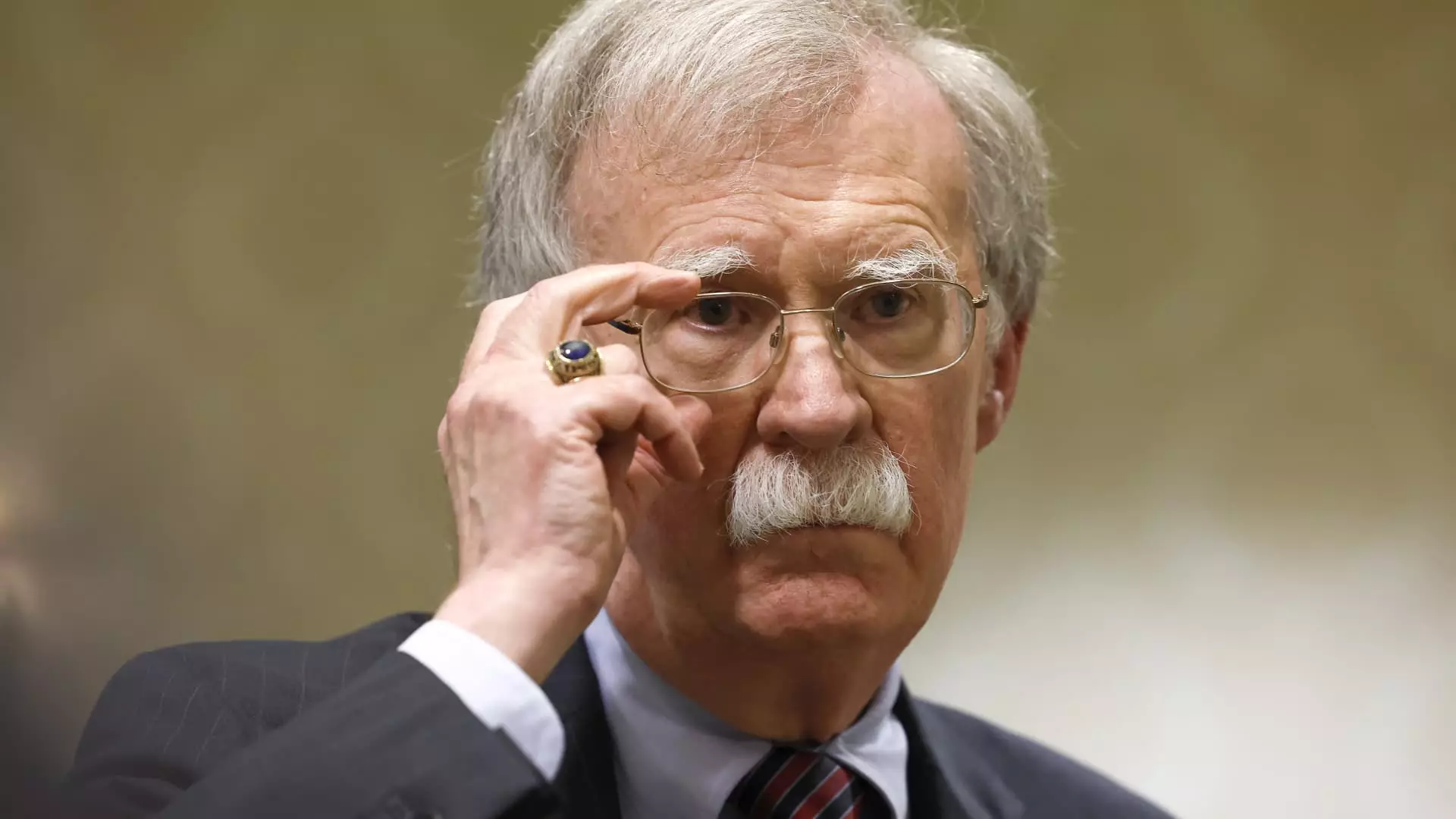In recent years, the United States plunged itself into a chaotic trade war, ignited by President Donald Trump’s administration. This move, initially framed as a necessary measure against China’s alleged unfair practices, has escalated into an offensive striking not just rivals but allies too. Critics, including former National Security Advisor John Bolton, have unabashedly labeled this approach as a strategic blunder—one that risks obliterating the trust and cooperation essential for tackling global economic challenges.
Trump’s sweeping tariffs took effect under the guise of economic liberation, disorienting global markets that witnessed a quick dive into panic. The repercussions extended far beyond the targeted entities, creating a ripple effect that harmed both friends and foes. Rather than reinforcing international partnerships in a bid to confront a common adversary like China, the administration chose an isolationist route that jeopardized years of positive diplomatic relationships.
Bolton’s insightful commentary highlights a critical weakness in Trump’s strategy. The president slapped tariffs on nations that historically stood beside the U.S., sending an alarming message: that alliances are expendable when economic grievances arise. This strategy not only disrespects and alienates allies but plays directly into China’s hands, empowering its position on the global stage. If the goal was to rally international allies against China’s questionable trade practices, this combative stance has achieved precisely the opposite effect.
The Economic Fallout
The economic ramifications of these tariffs cannot be understated. The chaotic announcement of a blanket 10% tariff on imports led to the evaporation of trillions in market wealth, leaving countless investors scratching their heads over the nonsensical premise behind the tariffs. Trump’s method lacked a coherent economic foundation, prompting widespread condemnation from economists who decried it as nothing more than a populist gesture rather than an effective policy based on sound economic principles.
The trade war has, in fact, opened the door for significant losses on American soil, with tariffs escalating tit-for-tat between the world’s two largest economies. Current levies hover at a staggering 145% on Chinese imports while China retaliates with a 125% charge on U.S. goods. These rates are unsustainable and reflect a poisoned economic relationship, as both sides suffer the consequences. What was intended as a strong-arm tactic has morphed into a self-inflicted wound that undermines American economic interests.
Even more alarming is the emergence of a friends-versus-enemies framework. By asserting tariffs against loyal partners, Trump is fostering a climate of distrust that may have lasting implications for international trade as we know it. This trade war could reignite old rivalries and make diplomatic resolutions even more difficult in the future.
The Global Reaction
International leaders have not remained silent in response to Trump’s trade tactics. The damage to trust and credibility is palpable, as expressed most vocally by French Prime Minister François Bayrou, who emphasized the “hurricane” of chaos unleashed on the global stage by the U.S. administration. In an era defined by interdependence and collaboration, such actions paint a grim picture where powerful nations are pitted against each other rather than working cohesively to resolve common challenges.
Meanwhile, China is perpetuating a narrative of stability amid the chaos. By establishing relationships in Southeast Asia through diplomatic outreach, Chinese Premier Xi Jinping capitalizes on the U.S.’s missteps, positioning China as an ally for countries that feel marginalized by Trump’s tariffs. This sharp maneuvering demonstrates China’s reliance on a distinct yet growing coalition of partners, effectively countering Washington’s once-unassailable influence.
Bolton’s analysis serves as a wake-up call. Instead of creating a united front against unfair trade practices stemming from China, Trump’s administration has alienated potential allies in Japan, South Korea, and other nations. Failing to engage with these critical partners not only inhibits the effectiveness of any singular strategy aimed at reforming China’s practices but also leaves America out in the cold when it comes to gaining meaningful leverage on the international stage.
A Call for Strategic Realignment
For a time-honored country that has played a pivotal role in global governance for over eight decades, the fallibility of its current administration must be scrutinized. It is evident that the strategies being employed have far-reaching consequences. Preserving alliances with like-minded nations and crafting plans of action through cooperation is crucial for America not only to fend off unfair trade situations but also to maintain its influence in an increasingly multipolar world.
As this trade war continues to evolve, it has become starkly clear that America must reconsider its approach. Rebuilding trust and fostering partnerships should be at the forefront of the national agenda. In doing so, the United States can enhance its position and counterbalance the rising influence of nations like China, paving a path toward an economically stable future built on collaboration rather than conflict.


Leave a Reply